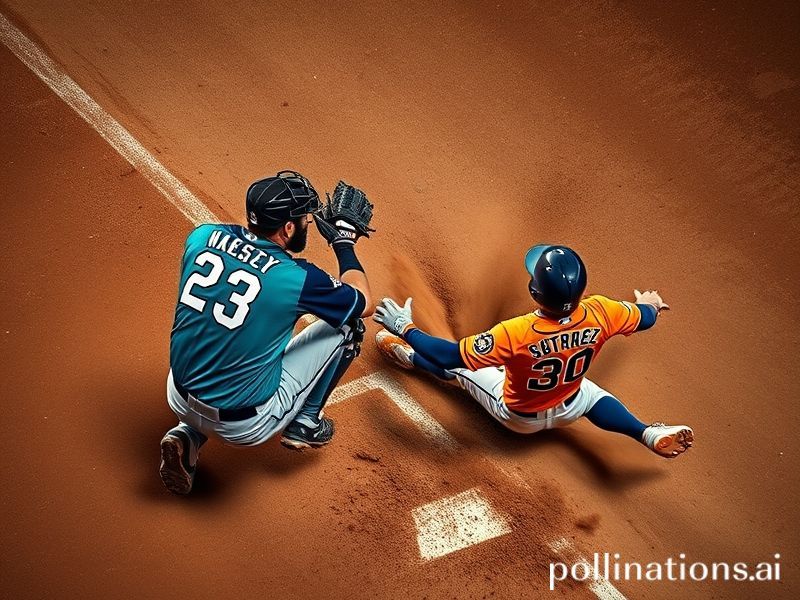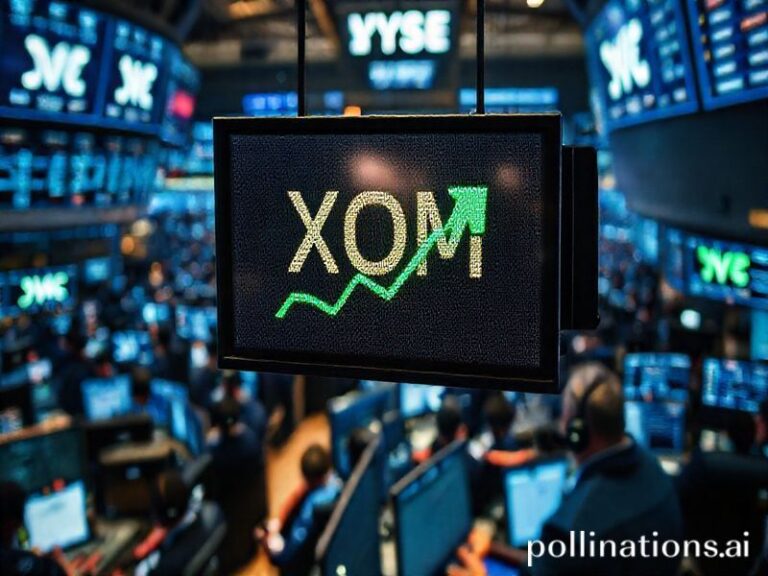Mariners vs Astros: A Global Scoreboard of Geopolitics, Greed, and Curveballs
The Seattle Mariners and Houston Astros—two franchises separated by 1,900 miles, roughly the same distance now separating global wheat futures from reality—met again last night in a contest that, on paper, was merely an early-season American League West tilt. Yet to anyone who has watched the planet tilt further toward entropy while baseball insists on keeping score, the game felt like a geopolitical micro-drama wrapped in polyester pinstripes. One club represents the Pacific Rim’s tech utopia where baristas unionize and billionaires race yachts for sport; the other hails from an energy capital whose most famous export is still the humble apology from petroleum executives. Somewhere between the foul lines, humanity’s current contradictions played nine tidy innings.
For the international observer—say, a bleary-eyed bond trader in Singapore or a Ukrainian refugee who once worshipped Yu Darvish—the Mariners serve as a reminder that even America’s far-flung corner stores can nurture hope. The franchise carries the longest playoff drought in North American sports, a streak so ancient that the last time Seattle won a postseason series, the euro didn’t exist and Vladimir Putin was merely a mid-level St. Petersburg bureaucrat with a modest dream. The Astros, meanwhile, have become the poster boys for sanctioned skulduggery: a team that stole signs, shrugged, and then kept the trophy—like a rogue state caught enriching uranium and rewarded with a seat on the Security Council.
Last night’s final, 6-3 Houston, therefore carried the faint odor of inevitability, the way climate summits end in polite applause while emissions graphs still resemble a SpaceX launch trajectory. The Astros’ Yordan Álvarez launched a baseball into orbit that may or may not be tracked by NORAD; the Mariners’ Julio Rodríguez answered with a triple that died at the warning track, a diplomatic cable intercepted by gravity. Each swing felt freighted with symbolism: the Global South flexing raw power, the Pacific Northwest politely recycling its aluminum dreams.
Globally, the game’s broadcast reached 183 countries thanks to MLB’s streaming platform, which means a goat herder in Kyrgyzstan could theoretically watch José Altuve leg out an infield single instead of, say, the price of feed. The irony is not lost on league marketing executives who now sell “MLB World Tour” caps stitched in Bangladeshi factories where workers earn less per day than what the Astros’ starting pitcher tips his clubhouse barber. Somewhere in the supply chain, a container ship idles outside the Port of Los Angeles, its diesel engines humming the same key as the stadium organist mangling “Take Me Out to the Ball Game.”
Diplomats in Brussels tracking U.S. soft power may note the Mariners’ roster: eight nations represented, from Panama to South Korea, a walking United Nations minus the speeches and veto powers. The Astros, by contrast, remain stubbornly parochial—only three foreign-born players—suggesting either exceptional scouting in the American heartland or a subtle nod to nativist politics currently fashionable in certain zip codes. When Houston closer Ryan Pressly struck out Seattle’s Cal Raleigh to end it, the moment was celebrated by oil lobbyists in skyboxes already pricing next quarter’s carbon credits.
In the post-game Zoom, Mariners manager Scott Servais spoke of “learning experiences,” that universal balm for the perpetually near-miss. Astros skipper Joe Espada praised “resilience,” a word that has lately been adopted by central bankers describing consumer behavior in the face of 20% grocery inflation. Neither man mentioned that both cities—Seattle and Houston—are racing to build seawalls against the same rising tide; baseball, after all, prefers its existential threats limited to the seventh-inning stretch.
And so the season grinds on, a 162-game parable about talent, luck, and institutionalized cheating. Somewhere tonight, another first pitch will arc through the air like a drone over the Strait of Hormuz. The scoreboard will reset to 0-0, as if history ever truly begins again. But keep watching: when the last out is recorded and stadium lights dim, the planet’s axis will have shifted another fraction of a degree, indifferent to pennant races yet acutely aware of who cashes the broadcast rights.







